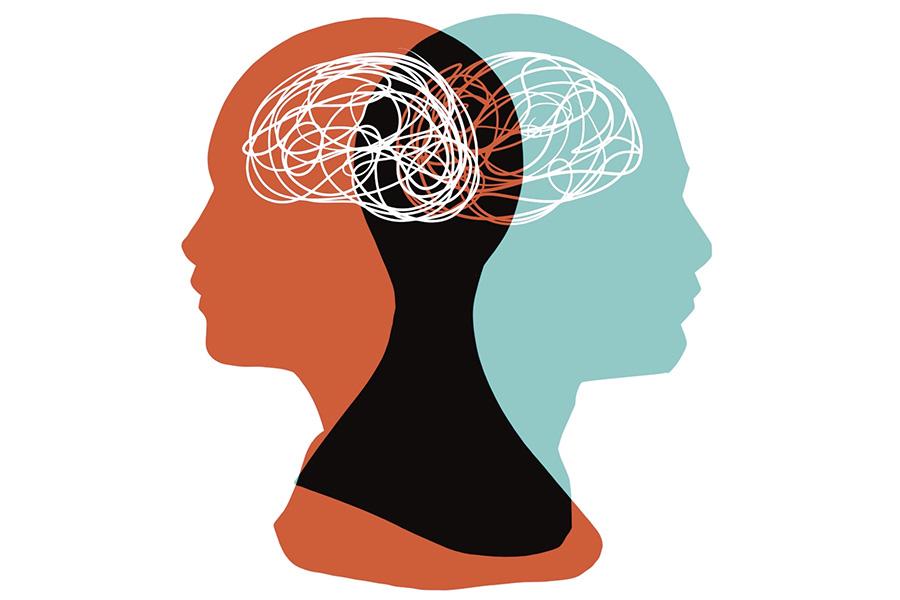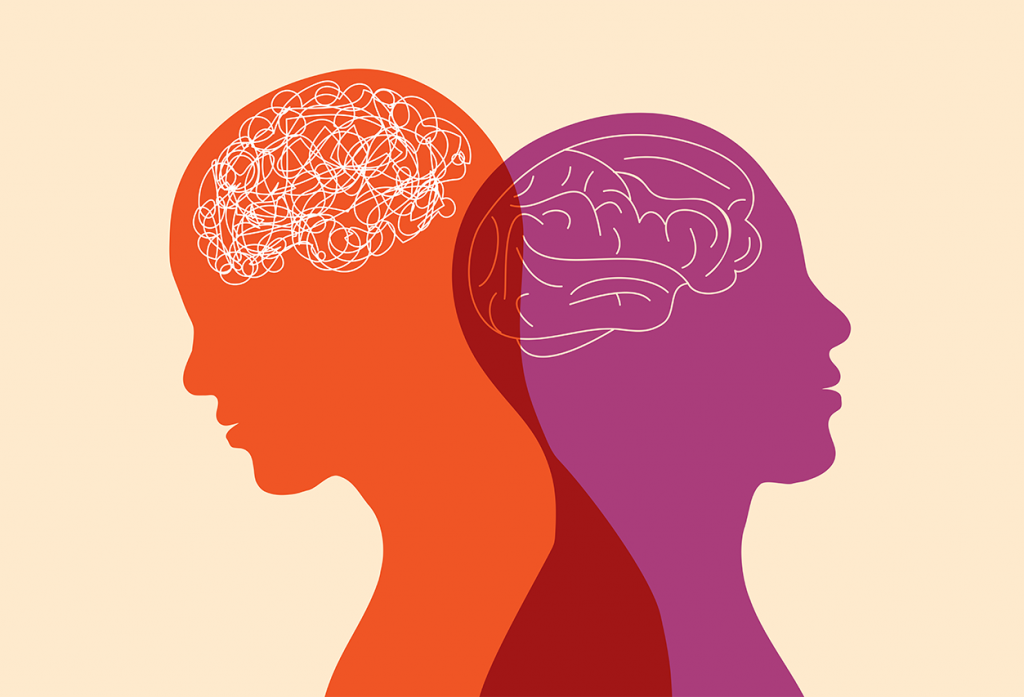Comprehensive Inpatient Mental Health Services for Effective Therapy
Inpatient psychological wellness solutions represent a crucial component of the healthcare system, supplying a intensive and organized environment for people experiencing serious mental distress. These solutions employ a multidisciplinary method, integrating various evidence-based therapies to resolve the complicated demands of patients. Nonetheless, the efficiency of such comprehensive treatment expands past prompt stablizing; it also encompasses the shift to outpatient assistance, a critical phase typically overlooked. Discovering the nuances of this continuum discloses substantial implications for both specific recovery and broader psychological health and wellness end results. What factors genuinely influence this transition, and how can we boost its performance?
Recognizing Inpatient Mental Wellness Solutions
Inpatient psychological wellness services offer important assistance for people experiencing extreme emotional distress that can not be taken care of properly in an outpatient setup. These solutions are made to provide an extensive level of treatment in a structured atmosphere, often within a hospital or specialized facility. Clients admitted to inpatient programs normally show intense signs, such as suicidal ideation, extreme depression, or psychosis, requiring round-the-clock surveillance and intervention.
The admission procedure generally includes an extensive analysis by mental wellness experts, who review the individual's frame of mind, history, and prompt requirements. As soon as admitted, patients participate in a variety of healing modalities customized to their specific demands, including medicine monitoring, individual therapy, and group sessions. This alternative technique intends to support the client's condition, advertise security, and foster coping abilities.
Inpatient psychological health solutions not only address prompt health issues but also work as a bridge to ongoing care. By supplying a regulated atmosphere, these solutions facilitate the advancement of therapy strategies that can be proceeded in outpatient setups, therefore ensuring a continuum of treatment and boosting long-term end results for people with complex mental health demands.
Secret Parts of Effective Therapy
Effective treatment in inpatient psychological health and wellness services makes up several key elements that cultivate healing and stabilization. A thorough analysis is crucial to recognize the person's certain demands and obstacles. This analysis notifies the advancement of a tailored therapy strategy, which offers as a roadmap for intervention.
Another crucial component is the multidisciplinary group technique. Partnership among psychoanalysts, psycho therapists, nurses, and social workers ensures that numerous viewpoints contribute to the patient's treatment, improving the effectiveness of therapy. Evidence-based restorative modalities, such as cognitive-behavioral treatment (CBT) and dialectical behavior modification (DBT), are additionally important, offering organized methods that resolve maladaptive idea patterns and behavior problems.

Last but not least, an emphasis on aftercare planning is critical to make sure a seamless change to outpatient services, minimizing the threat of relapse and advertising long-lasting wellness. These cumulative components develop an effective therapy framework within inpatient psychological health and wellness services.
Benefits of Comprehensive Treatment

Comprehensive care in inpatient psychological health services uses numerous advantages that considerably improve person outcomes. One of the main benefits is the all natural approach to treatment, resolving not only the psychological symptoms however likewise the physical, social, and psychological demands of people. This comprehensive evaluation permits for customized treatments that advertise total health.
Another advantage is the integration of multidisciplinary teams, which fosters collaboration among healthcare professionals. This collective environment ensures that clients receive collaborated care, decreasing the danger of fragmented treatment and enhancing communication among caretakers. Comprehensive care facilitates connection of services, allowing for smooth changes from inpatient to outpatient setups, read this article which is vital for long-lasting healing.

Last but not least, the organized setting of thorough inpatient treatment gives a secure area for individuals to participate in restorative activities, aiding them establish dealing methods and durability. Collectively, these benefits contribute to more reliable therapy and improved lifestyle for people experiencing psychological health and wellness crises.
Evidence-Based Therapeutic Strategies
In the world of mental health therapy, evidence-based restorative methods play an important role in guaranteeing that patients obtain efficient and scientifically sustained treatments. These approaches incorporate the very best available study with scientific know-how and client worths, promoting a tailored therapy experience that deals with specific requirements.
Cognitive Behavioral Treatment (CBT) is one of the most extensively recognized evidence-based techniques, concentrating on identifying and altering adverse idea patterns and actions. This structured strategy has demonstrated effectiveness in dealing with conditions such as anxiety, stress and anxiety, and PTSD. In A Similar Way, Dialectical Behavior Modification (DBT) is particularly efficient for individuals with borderline character problem, stressing the advancement of emotional guideline and social efficiency abilities.
In addition, drug monitoring is often an essential element of evidence-based treatment, as psychotropic medicines can minimize signs and improve overall functioning. Joint treatment designs, which include multidisciplinary teams, further boost the efficiency of inpatient solutions by making sure detailed examinations and continuous monitoring.
Inevitably, the combination of evidence-based therapeutic approaches not just promotes favorable professional end results however also encourages individuals, fostering a feeling of company and resilience in their psychological health and wellness journeys.
Transitioning to Outpatient Assistance
The transition from inpatient psychological health and wellness services to outpatient assistance marks a critical stage in a client's recovery trip. This period calls for careful planning and coordination to ensure continuity of treatment and to reduce the threats of relapse or crisis. Efficient discharge planning need to commence early in the inpatient remain, involving a multidisciplinary group that includes psychoanalysts, psychologists, nurses, and social employees.
Crucial element of a successful change include the advancement of an extensive aftercare strategy tailored to the individual's details needs. This strategy should detail follow-up consultations, medication monitoring, and therapeutic interventions, along with identify neighborhood sources and support groups that can promote ongoing healing.
In addition, patient and household education and learning is vital during this phase. Recognizing the signs of potential obstacles and the relevance of adhering to treatment can equip individuals and their support group.
Normal follow-up and reassessment of the outpatient plan are vital to resolve advancing challenges. By fostering a collective connection in between outpatient and inpatient service providers, the probability of continual healing rises, inevitably boosting the person's lifestyle and reducing the risk of find out here now readmission.

Final Thought
In recap, extensive inpatient psychological health solutions offer a necessary structure for dealing with serious emotional distress through a multidisciplinary method. By incorporating evidence-based treatments, cultivating a structured atmosphere, and advertising family members participation, these solutions boost treatment efficiency. The focus on security and the growth of dealing skills not only aids in instant healing yet additionally helps with a smoother transition to outpatient care. Ultimately, such extensive care is crucial for lasting psychological wellness and health.
The admission procedure usually involves a comprehensive assessment by psychological wellness specialists, that assess the individual's mental state, background, and prompt requirements.Effective treatment in inpatient psychological health services makes up several essential components that promote recuperation and stabilization.Detailed treatment in inpatient psychological health and wellness services uses countless advantages that considerably boost individual end results.The shift from inpatient psychological health services to outpatient assistance marks a vital phase in a person's healing journey.In recap, extensive inpatient psychological health and wellness services use a vital framework for attending to extreme mental distress via a multidisciplinary technique.